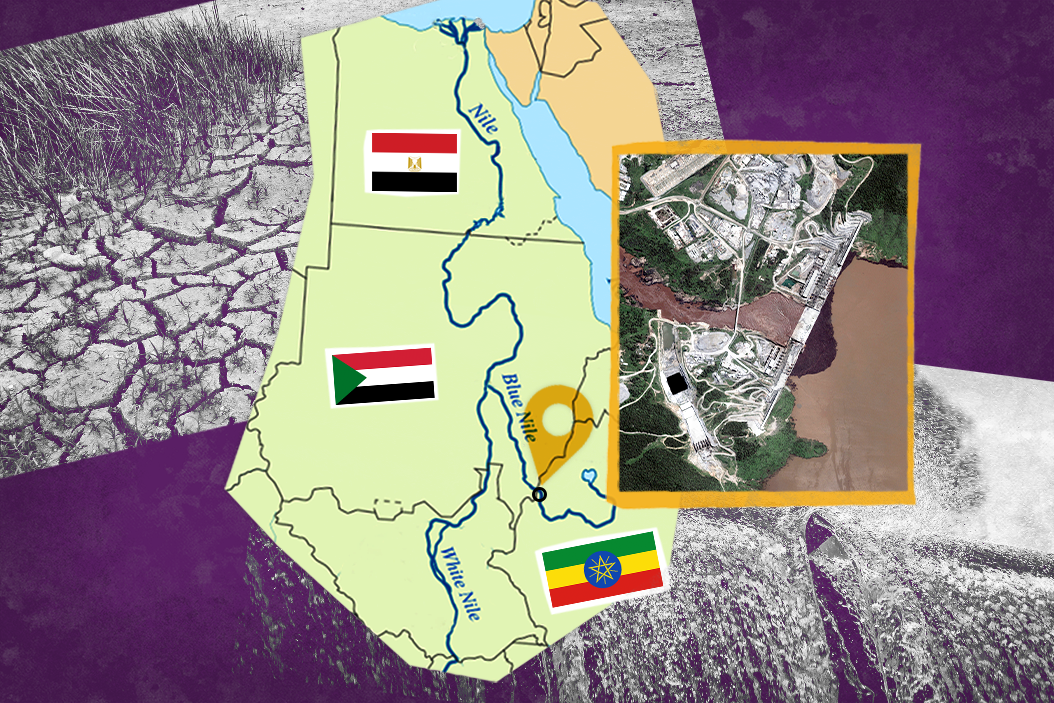February 25, 2021
Egypt and Sudan want some dam help: Cairo and Khartoum have called on the US, EU, and UN to intervene in their ongoing dispute with neighboring Ethiopia over that country's construction of a massive hydroelectric dam on the Nile. Egypt and Sudan, which are downstream of Ethiopia and worry about their farmers losing water, want binding targets and dispute resolution mechanisms, while Ethiopia, which sees the dam as a critical piece of its economic future, wants more flexibility and has given little ground in talks. Efforts by the African Union to mediate have failed as Ethiopia presses ahead with filling the dam even after being sanctioned by the Trump administration last year for doing so. The dispute over the Grand Ethiopian Renaissance Dam, as it is called, has threatened to spill into military conflict at several points in recent years. Can the "international community" turn things around?
US airstrike on Iran-backed militias: On Thursday, President Biden ordered an airstrike against "multiple facilities located at a border control point used by a number of Iranian-backed militant groups," according to the US military. The US side has called this a "proportionate military response" to three rocket attacks launched from Syria on US forces in Iraq. The first of those three attacks killed an American civilian contractor and wounded five others. If Iran is testing the new US president, this strike is meant to signal that the US will hit back if tested, but still hopes both sides can de-escalate. We'll be watching to see how many more punches Iran's proxies in Syria want to throw before Washington and Tehran move to restart nuclear talks.
India-Pakistan ceasefire:Longtime foes India and Pakistan have agreed to a ceasefire in the predominantly Muslim area of Kashmir for the first time in almost two decades. (A 2003 ceasefire along the Line of Control was consistently violated.) In theory, this means that armed forces from both South Asian nations have agreed to stop exchanging fire across the border by midnight Friday, in a bid to end a low-grade conflict that's killed hundreds of locals and military personnel over the past few decades. Relations between the two sides have long been hostile but soured further in 2019 when New Delhi blamed Islamabad for a terror attack that killed 30 Indian military personnel, resulting in a series of tit-for-tat attacks and cross-border skirmishes. The row between the two nuclear powers went from bad to worse that same year, when India revoked Kashmir's special status in an attempt to integrate the region into India, irking Islamabad and sparking an uptick in violence. However, the two sides have committed to halting hostilities and sorting out the status of disputed Kashmir before — it would be a massive feat if they can pull it off this time around.
Coup in Armenia? Armenian Prime Minister Nikol Pashinyan has accused the army of attempting to stage a coup after the military establishment called on him to step down over the PM's alleged foreign policy blunders in the Nagorno-Karabakh conflict with Azerbaijan. The PM — who has been under pressure to resign for months over his ill-fated decision to surrender some territory to the Azeris in order to stop the conflict and ensure a longterm truce — responded by firing the head of the armed forces. Meanwhile, thousands of Pashinyan's supporters heeded his call to turn up on the streets of the capital, Yerevan, where they were met by a similar number of anti-government demonstrators. With the two main opposition parties supporting the army's demand for the PM to call it quits, Pashinyan is fast running out of options to stay in power. Meanwhile, of the two main outside players involved in Nagorno-Karabakh, so far Turkey has condemned the coup attempt, while Russia has kept mum. Indeed, Pashinyan's political survival could in part depend on Russia, which has forces and military bases in Armenia. What will Vladimir Putin do?More For You
Bad Bunny during the Super Bowl LX halftime show press conference at Moscone Center.
Kirby Lee-Imagn Images
100 million: The number of people expected to watch the Super Bowl halftime performance with Bad Bunny, the Puerto Rican superstar and newly minted Album of the Year winner at the Grammys.
Most Popular
Think you know what's going on around the world? Here's your chance to prove it.
- YouTube
An imminent US airstrike on iran is not only possible, it's probable.
Americans are moving less — and renting more. Cooling migration and rising vacancy rates, especially across the Sunbelt, have flattened rent growth and given renters new leverage. For many lower-income households, that relief is beginning to show up in discretionary spending. Explore what's changing in US housing by subscribing to Bank of America Institute.
© 2025 GZERO Media. All Rights Reserved | A Eurasia Group media company.
